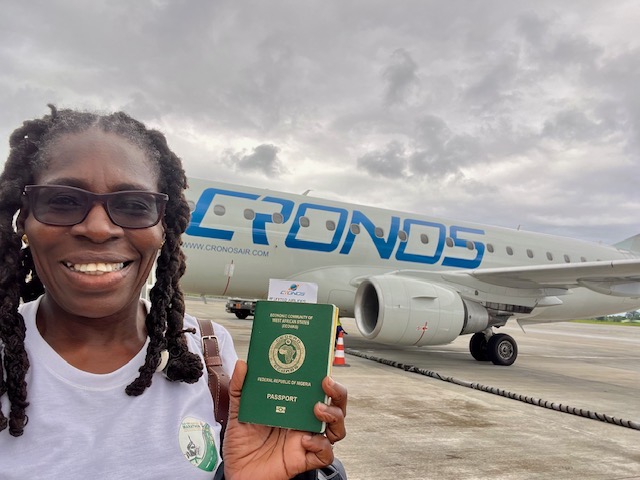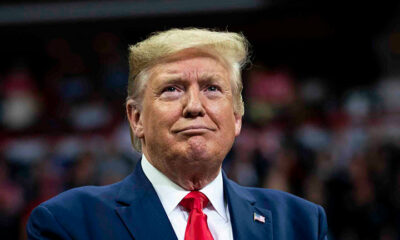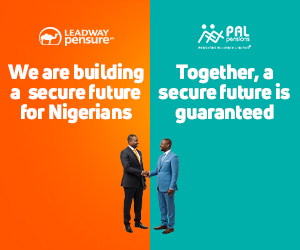Features
Dayo Akinbode: The Price I Pay for Travelling the World With a Nigerian Passport
My passport may not open many doors, but my determination kicks the doors open. Every trip I take is a story of resistance, resilience and reclaiming space in a world that tries to shut me out. And I will keep going. Not because the journey is easy, but because I must.

Something unusual happened to me recently. I walked up to the check-in counter of Juneyao Air in Athens for my flight to Bangkok, handed over my Nigerian passport, and braced myself as usual for the series of questions.
The officer looked at my passport and asked only one question: “Do you have a visa to Thailand?” I said yes and proceeded to retrieve the e-visa from my phone. Unfortunately, I had not downloaded the e-visa from the Thailand e-visa website, so I had to log in, retrieve the document and download it. I should have done all of these before arriving at the airport. My phone was not connecting to the airport WiFi fast enough, its battery was running out, and worse still, a queue was building up behind me. The officer behind the counter was patient and kind. He requested that I hand over my phone, connected me to his hotspot and helped me navigate to find my visa. He smiled, tapped a few keys on his keyboard, printed my boarding pass, and said, “Enjoy your flight.”
That was all. No suspicion. No second-guessing. No questions about my return ticket, travel history, or proof of funds. He did not call any manager over to verify that I had a reason to travel to Thailand.
I stood there stunned with my boarding pass in hand. Not because anything bad happened, but because nothing happened. And in that moment, I realised what ease feels like. This is what many passport holders experience every time they travel. This is what trust looks like. And this? This is what I am rarely given. But I also do understand that trust is earned.
My Nigerian passport ranks among the weakest in the world. I have visa-free access to only a handful of countries. For the other countries, Nigerians must apply, prove, pay and pray. We must prove that we are worthy of temporary entry by submitting bank statements, employment letters, property documents, travel history, and sometimes proof of intention to return home. We must pay high visa fees, which are often non-refundable, along with the cost of logistics, courier services, and sometimes third-party agents. And finally, we must pray because even with perfect paperwork and legitimate intentions, visa approvals are never guaranteed. My visa application to Hong Kong at the beginning of this year is an example. My application was rejected with no reason or recourse, and truly, maybe I was owed no explanation.
For many of us, a visa application is not mere paperwork, it’s a plea. A plea to be allowed to move, a plea to be allowed to explore our beautiful world, a plea to live. Not because we are threats, but because our passport says we could be threats. The visa application process conveys a clear message: “You are not trusted.” It communicates that our passport raises suspicions and our presence is unwelcome.
And yet, we keep going. We write cover letters like lawyers, curate documents like archivists and explain ourselves like defendants to obtain a visa. We are travellers, yes, but we are also fighters. We put up a fight to obtain our access to come out of the cage we find ourselves in. And even when the visa is granted, the fight is not over. At every airport check-in, immigration booth, and security checkpoint, there is an extra layer of questioning simply because of the colour of our passports.
To move through this world on a Nigerian passport is to navigate suspicion at every checkpoint. We move through the world with heavy documentation. We are the travellers who pack not just clothes and chargers, but a thick skin and evidence—hotel bookings, bank statements, invitation letters, travel history and, even, our dignity. We are met with suspicion before welcome. With scrutiny before access. While others breeze through immigration, we are pulled aside. While others travel on impulse, we travel only with planning, preparation and often prayers.
But this was not always the case, and this did not happen by accident. Decades of political instability, a struggling economy and the global spread of negative stereotypes have shaped how the Nigerian passport is perceived. In addition, fraud concerns, weak diplomatic ties and poor governance have not helped. These made the global mobility system deeply unequal. Powerful nations secure freedom for their citizens while the rest of us are met with walls, hurdles and suspicion.
This hurts. It hurts more when I have bought the ticket, have the right paperwork, and I am still treated as though I do not belong. My recent experience in Taipei on my way to Palau is a typical example. Palau claims to operate a visa on arrival process for all nationalities, and I assumed Nigeria was part of the “all nationalities” and proceeded to buy my ticket and tick all the other required boxes. I was travelling with a group of non-Nigerian friends for the same purpose. All my friends were boarded, and I was denied boarding with no explanation. At that moment, I was reminded I was Nigerian without a word being said. These are frustrating, exhausting and humiliating experiences. I feel stripped of dignity every time I have to prove that I am “not a threat.”
Sometimes I feel like a criminal in transit, always under suspicion, always having to explain myself. Like I had to explain myself at the point of entry in Nicaragua in June of 2022. The immigration officers found it difficult to believe I had flown to the capital city of Manama to run a marathon. I had travelled with a group for the same purpose, and we were all spending three days in the same hotel. Others were believed, but it took about 30 minutes of gruesome questioning and intervention by others to let me into the country, even though I had all my paperwork in place.
This is why my recent experience with that shockingly smooth check-in in Athens made the usual struggle even more bitter by comparison. Because for one fleeting moment, I tasted what others take for granted.
I could give in to the bitterness. But I do not. I allow the frustration to sharpen my resolve and not dull my spirit. I carry out my research, I prepare hard, and I learn immigration patterns. I leverage every bit of global goodwill. I show up stronger, and I hold my head high as a proud Nigerian. I refuse to be ashamed of my roots, even when the world tells me I should be. I represent Nigeria with grace, strength and honesty. I document the journey. Not just the destinations, but the hurdles. I tell my story because our silence will not change anything. I built a trail so others can follow, or at least, find a less rocky.
And most importantly, I keep going. My passport may be weak, but my will is strong. I work around the barriers. I have found ways to visit 100 countries and run marathons in 95 of those countries. Not because this was easy, but because I will not let the system win.
I save more. I plan earlier. I travel smarter. I collect letters, confirmations, visas and a long list of embassy requirements to go where others walk in with a smile and a passport. I show up with grace, dignity and relentless persistence. And each time I get that stamp that gives me access, each time I hold that boarding pass, every time I receive that entry, I carry the weight of my entire country with me. Not as a burden, but as a badge.
We cannot as a people fix this overnight. But we can begin somewhere. Let us demand more from our government. We need stronger diplomatic efforts, more visa agreements, and better international representations. Let us support each other by sharing tips, experiences and resources and make travel knowledge communal. Let us rebuild our image. Travel with pride. Be visible. Be excellent. Show the world the Nigeria they do not expect. Let us invest in the home. A more stable, prosperous and secure Nigeria that will give our passport more power over time.
That single question in Athens, “Do you have a visa to Thailand?” reminded me of everything that is wrong and everything that is possible. That question showed me the gap between how I am treated and how I could or should be treated. The question showed me the privilege of trust and the pain of the absence of trust.
My passport may not open many doors, but my determination kicks the doors open. Every trip I take is a story of resistance, resilience and reclaiming space in a world that tries to shut me out. And I will keep going. Not because the journey is easy, but because I must.
























